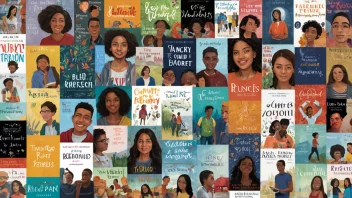What is the importance of emotional development in children?
Emotional development is critical for children as it helps them understand and manage their feelings, build relationships, and navigate social environments. Through emotional development, children learn empathy, resilience, and how to express their emotions appropriately.
How can books help in a child's emotional development?
Books can play a significant role in a child's emotional development by exposing them to various emotions, situations, and perspectives. They provide a safe space for children to explore complex feelings, understand the feelings of others, and learn coping strategies through characters and stories.
What types of books are best for emotional development?
Books that focus on themes of friendship, family, loss, and personal growth are particularly effective for fostering emotional development. Additionally, illustrated books and picture books often convey emotions visually, making it easier for younger children to connect with the content.
Can you recommend some specific book titles for emotional development?
- The Color Monster: A Pop-Up Book of Feelings by Anna Llenas - This interactive book introduces children to different emotions through vibrant illustrations.
- Wherever You Are My Love Will Find You by Nancy Tillman - A comforting story about unconditional love that helps children feel secure.
- Alexander and the Terrible, Horrible, No Good, Very Bad Day by Judith Viorst - A relatable tale that teaches children about handling disappointment.
- The Invisible String by Patrice Karst - This book helps children understand the concepts of love and connection, even when apart.
At what age should children start reading books that address emotional topics?
Children can start engaging with books that address emotional topics as early as preschool age. Picture books are ideal for younger children, while older children can handle chapter books that delve deeper into emotional themes. It's essential to select age-appropriate materials that resonate with their experiences.
How can parents facilitate discussions about emotions while reading?
Parents can facilitate discussions by asking open-ended questions about the characters’ feelings and actions. For example, after reading a story, parents can ask, "How do you think the character felt when that happened?" This encourages children to articulate their own feelings and understand different perspectives.
Are there any specific activities to complement reading for emotional development?
- Emotion Charades: Kids can act out different emotions while others guess what they are, reinforcing understanding of feelings.
- Art Projects: Children can draw or paint scenes from their favorite books that depict emotions, making the experience more tangible.
- Journaling: Encourage children to keep a journal where they can reflect on their feelings and relate them to the stories they read.
What if my child is struggling with emotional issues despite reading?
If a child is struggling with emotional issues, it's essential to consult a professional, such as a child psychologist or counselor. While books can be a valuable tool, they should not replace professional guidance when needed. Combining reading with therapeutic support can be highly beneficial.
Are there any online resources for parents to support emotional development through books?
Yes! There are numerous online resources available, including blogs, forums, and websites dedicated to children's literature and emotional education. Websites like Goodreads and Common Sense Media offer book recommendations and reviews focused on emotional themes.
Final Thoughts
Understanding children's emotional development through books can significantly enrich their lives. By choosing the right literature and engaging in meaningful discussions, parents can help nurture their child's emotional intelligence, paving the way for healthier relationships and better coping mechanisms in the future.






